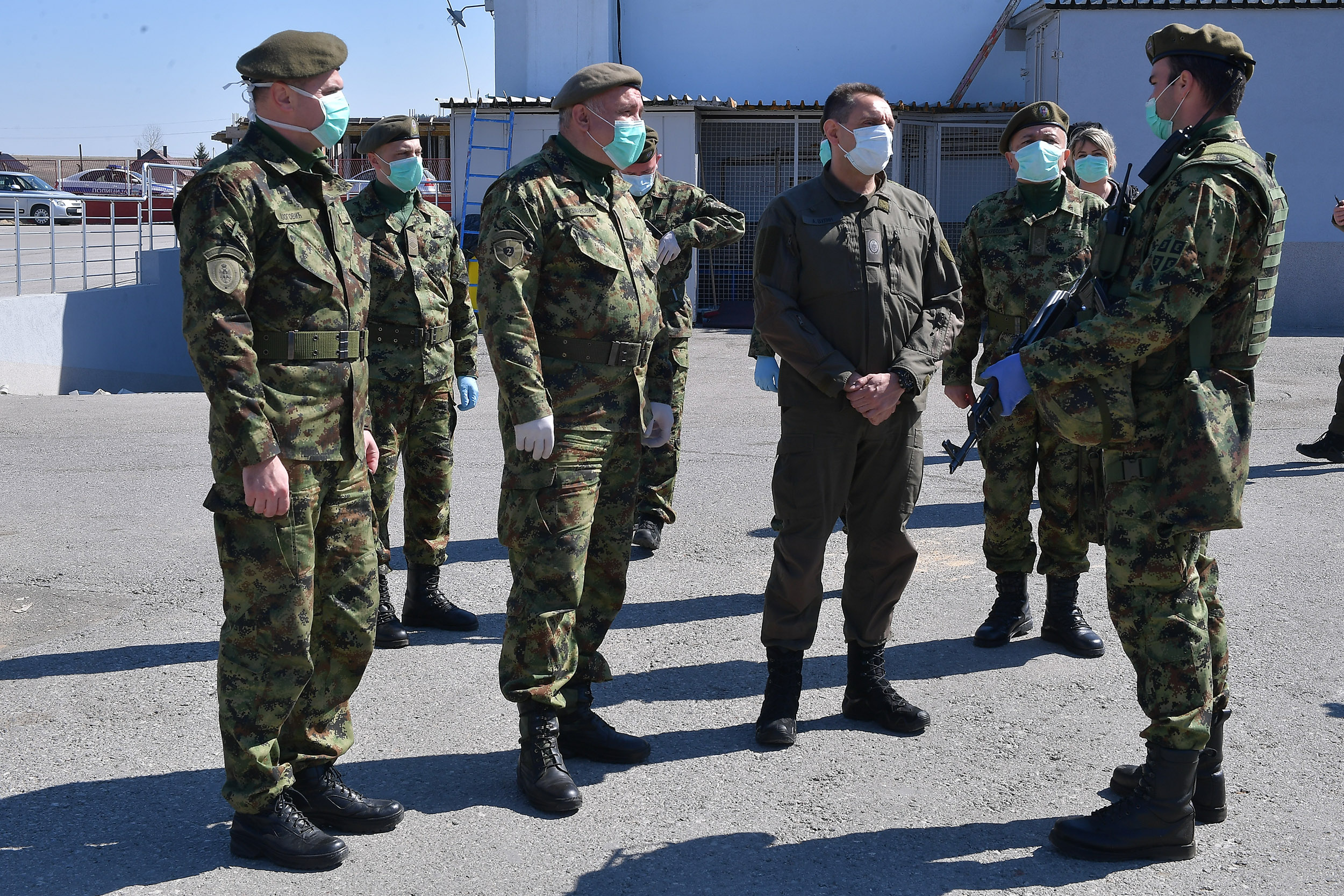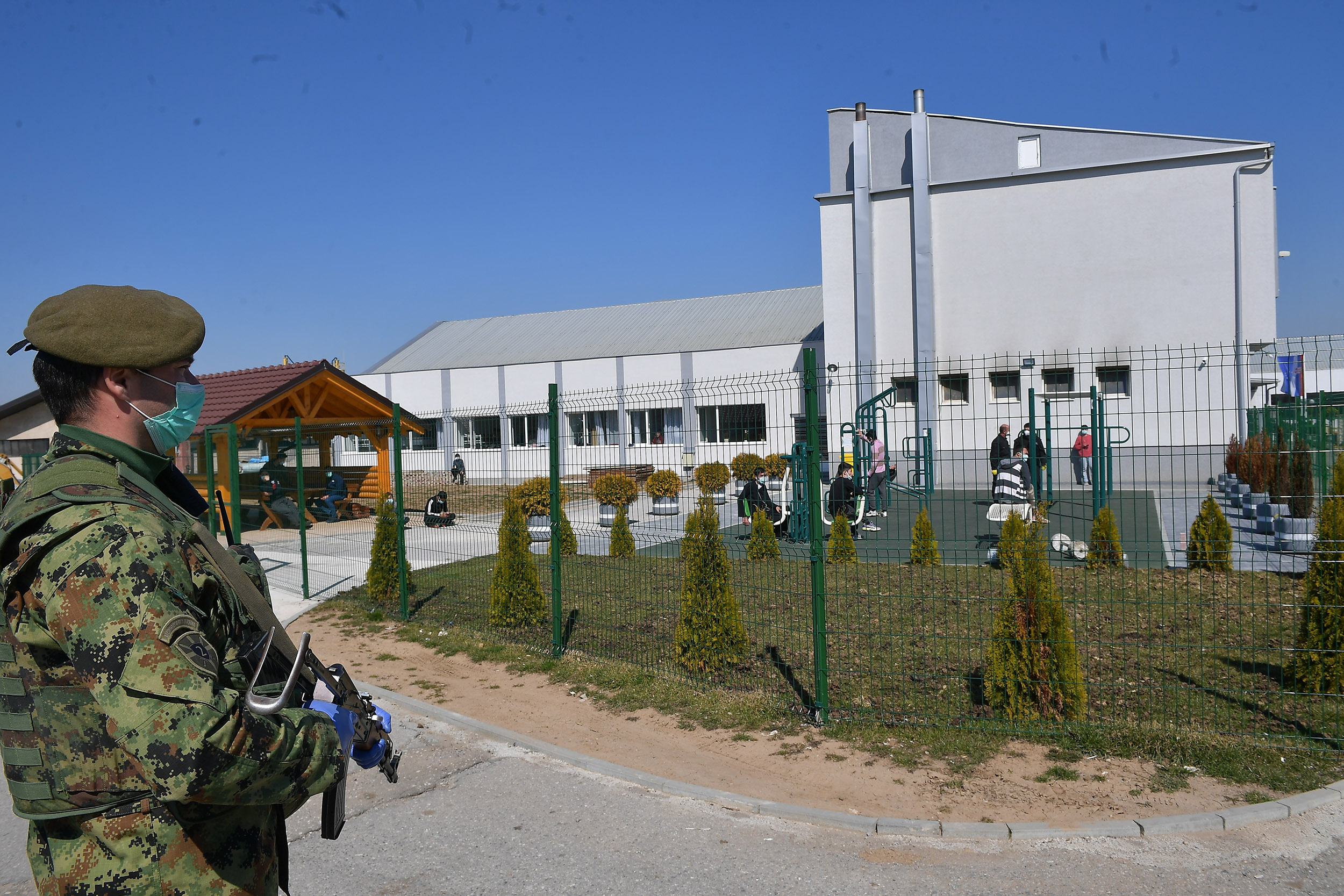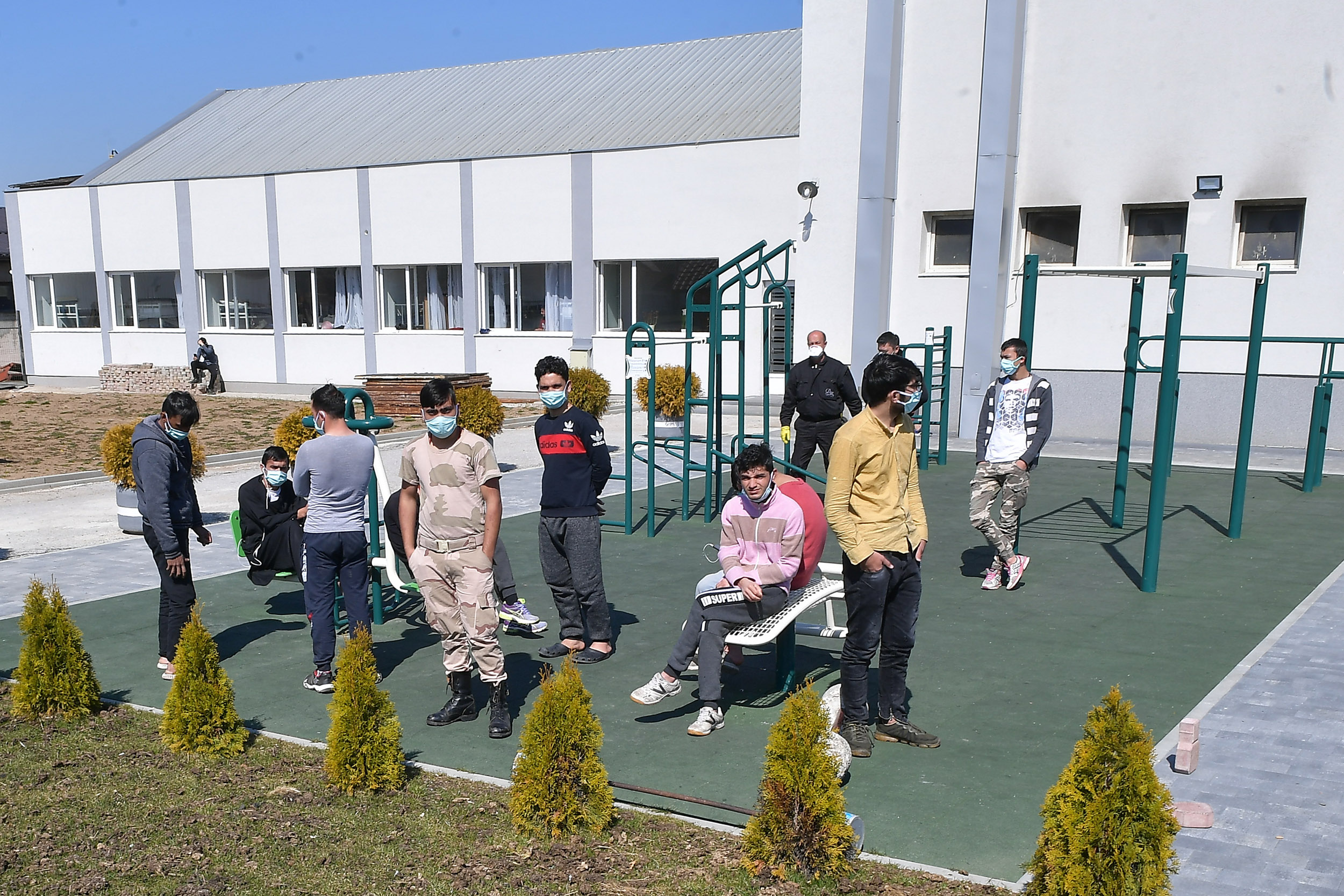21.03.2020.
Minister Vulin in Sjenica: the Serbian Armed Forces are welcome in both Sjenica and Belgrade, without exception
Today, the Minister of Defence Aleksandar Vulin visited the members of the Serbian Armed Forces, who are engaged in securing the Center for Protection and Assistance to Asylum Seekers in Sjenica.
After visiting the Center, Minister Vulin pointed out that the Serbian Armed Forces unconditionally implement the orders of their Supreme Commander and the competent authorities of the Government of the Republic of Serbia, even in a state of emergency.
 - We have taken on a great responsibility of securing all 17 migrant camps and enabling the migrants accommodated there to live and function normally, but also of making sure that the local population is absolutely protected from the spread of the virus but also in their everyday lives – Minister Vulin emphasized, reminding that the Serbian Armed Forces are carrying out this task in cooperation with the Commissariat for Refugees and Migration and the Ministry of Internal Affairs.
- We have taken on a great responsibility of securing all 17 migrant camps and enabling the migrants accommodated there to live and function normally, but also of making sure that the local population is absolutely protected from the spread of the virus but also in their everyday lives – Minister Vulin emphasized, reminding that the Serbian Armed Forces are carrying out this task in cooperation with the Commissariat for Refugees and Migration and the Ministry of Internal Affairs.According to our Minister of Defence, all the tasks are being carried out exactly as they were ordered, without any problems, and life goes according to plan.
- The Serbian Armed Forces feel comfortable in every part of our territory. All citizens of Serbia are very pleased and happy to see the representatives of our armed forces and the Serbian Armed Forces perform all their tasks in exactly the same way, whether in Sjenica or in Belgrade. We protect the everyday life of Serbian citizens, regardless of their religion and nationality. Serbian citizens know this and that is why they love the military so much. The Serbian Armed Forces are welcome in both Sjenica and Belgrade, without exception - Minister Vulin emphasized.
 The Commander of the Second Army Brigade, Brigadier General Željko Kuzmanović, emphasized that the Second Brigade successfully performs all tasks in the new circumstances.
The Commander of the Second Army Brigade, Brigadier General Željko Kuzmanović, emphasized that the Second Brigade successfully performs all tasks in the new circumstances.- In addition to the tasks it carried out until the declaration of a state of emergency, the Second Army Brigade is also engaged in securing four migrant centres for the reception of asylum seekers, the border crossings to the Republic of Montenegro and the General Hospital in Čačak. We have successfully completed all the tasks set before us by the Command, and we are also at the disposal of the superior command and the State of Serbia to successfully complete all tasks in the coming period - General Kuzmanović pointed out.
The director of the Centre for Protection and Assistance to Asylum Seekers in Sjenica, Fiko Hamdović, said that thanks to the involvement of the military, the Centre works much better.
- With the help of the military, we function much better and more easily because we have 295 asylum seekers at the Centre. We have extensive experience in cooperating with the military and the cooperation has always been successful - said Director Hamdović.
 The Centre for Protection and Assistance to Asylum Seekers in Sjenica was also visited today by the Commissioner for Refugees and Migration, Vladimir Cucić and the Mayor of Sjenica, Hazmo Mujović.
The Centre for Protection and Assistance to Asylum Seekers in Sjenica was also visited today by the Commissioner for Refugees and Migration, Vladimir Cucić and the Mayor of Sjenica, Hazmo Mujović.In accordance with the decision to introduce a state of emergency in the entire territory of Serbia, and in order to prevent the uncontrolled movement of potential virus carriers and to ban them from leaving the asylum and reception centres without permission, the Serbian Armed Forces, in cooperation with the Ministry of Internal Affairs and the Commissariat for Refugees and Migration are carrying out enhanced surveillance, control of entry and exit and external security of these facilities.
Serbian troops are deployed to asylum centres in Sjenica, Tutin, Bogovađa, Banja Koviljača and Krnjača, and to reception centres in Preševo, Bujanovac, Vranje, Bosilegrad, Pirot, Obrenovac, Adaševci, Šid, Principovac, Sombor, Kikinda and Subotica.
The Serbian Armed Forces have taken control of the reception and asylum centres so that the members of the Ministry of Internal Affairs can use their resources to monitor the implementation of the measures introduced by the Government of the Republic of Serbia to ban and restrict movement.




